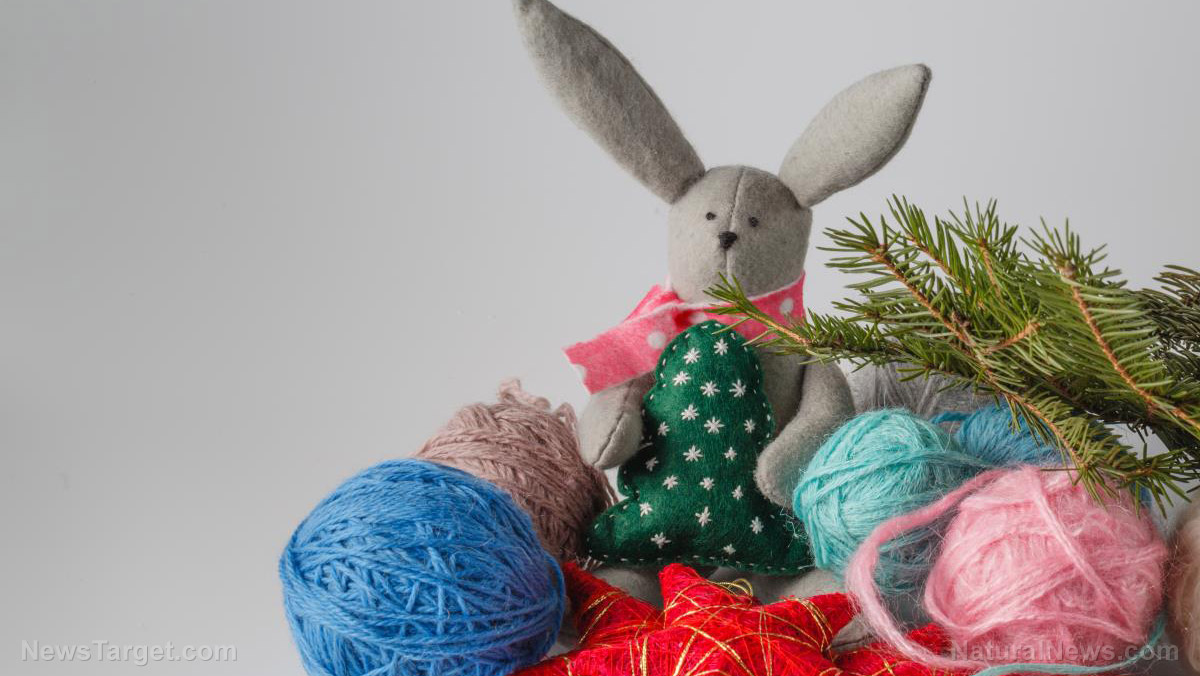Feel happy IMMEDIATELY by just knitting; scientists say working with your hands positively affects the neurochemistry of your brain
04/19/2018 / By Zoey Sky

It looks like grandmothers who love to knit are on to something. According to a study, taking part in activities that engage our hands, such as knitting, metal craft, painting, washing dishes, or woodworking, “can provide marked physical and psychological benefits.”
Dr. Kelly Lambert, a professor of behavioral neuroscience at the University of Richmond, talked about “behaviorceuticals,” a term she coined for what happens when we move and participate in activities that “change the neurochemistry of our brain in ways that a drug can change the neurochemistry of our brain.”
Data from Dr. Lambert’s research with rats showed that the rats that have to use their paws to reach a treat did better than what she called the “trust-fund” rats, or other subjects that were simply given the treats. The rats that didn’t have to work to receive the rewards had high levels of stress hormones. Additionally, the trust-fund rats weren’t as emotionally resilient. Meanwhile, the rats that worked with their paws and searched for the treats, had “a better sense of self-efficacy.”
Psychologists use the term self-efficacy to refer to an individual that can be “successful at behaviors that change one’s environment in a rewarding way.” In other words, if you have a sense of self-efficacy, you’re confident that you have what it takes to be a happy person.
Applying these animal-driven results to humans points to extensive substantial evidence of similar phenomena. For example, there has been renewed interest in knitting, both in old and young people alike. (Related: Sewing Your Way To Better Mental Health.)
Findings for a separate study conducted by Knit for Peace U.K., a charity that believes knitting is a hobby that offers many benefits, determined that knitting can help delay the onset of dementia and allow individuals to manage their anxiety and depression. Additionally, the results of the study, which observed over 15,000 knitters in the U.K., showed that knitting can help chronic pain sufferers focus on something besides their debilitating condition.
The results of another study, which was published in The Journal of Positive Psychology in 2016, showed that taking the time to work on creative goals daily had a positive effect on psychological functioning. In fact, people who actively pursued creative endeavors, even if the positive psychological impact only lasted for an hour or two, reaped benefits that extended to until the next day.
On days when you’re feeling down or anxious, try to start a new hobby or activity that will involve working with your hands, such as knitting or learning how to play an instrument. It might not seem like it, but your new hobby could significantly affect your mental health and happiness.
Other hobbies to try
If you’re not sure if knitting is for you, here are some other hobbies that you can try:
- Gardening — Aside from being able to grow your own flowers, fruits, and vegetables, gardening can help reduce your cortisol levels, a.k.a. the stress hormone. Helping plants grow from seed to full-grown plant can help you feel like you can “cause positive change in the world,” and it even counts as exercise!
- Keep a journal — Keeping a journal can help you organize your thoughts, plan your goals, and solve your problems. Journaling can also help relieve your stress. Writing in a journal can also help you know yourself better.
- Learn how to cook — According to studies, people who often cook their meals at home are healthier and live longer than those who frequently eat out. Buying ingredients at the grocery store means you pick your own food and that you’ll buy less processed foods, sugary foods, and fat. By cooking regularly, you’ll even learn to make healthier food choices.
- Learn how to play an instrument — Consider taking piano lessons, which can increase cognitive development. Playing the piano can also improve your eye-hand coordination and fine-motor skills.
You can learn more about knitting and other hobbies that can boost your mental health and happiness at Mind.news.
Sources include:
Tagged Under: Anxiety, behaviorceuticals, brain function, chronic, dementia, depression, happiness, hobbies, Knit for Peace, knitting, mental health, mind body science, mind-brain connection, neurochemistry, Psychology, self-efficacy




















